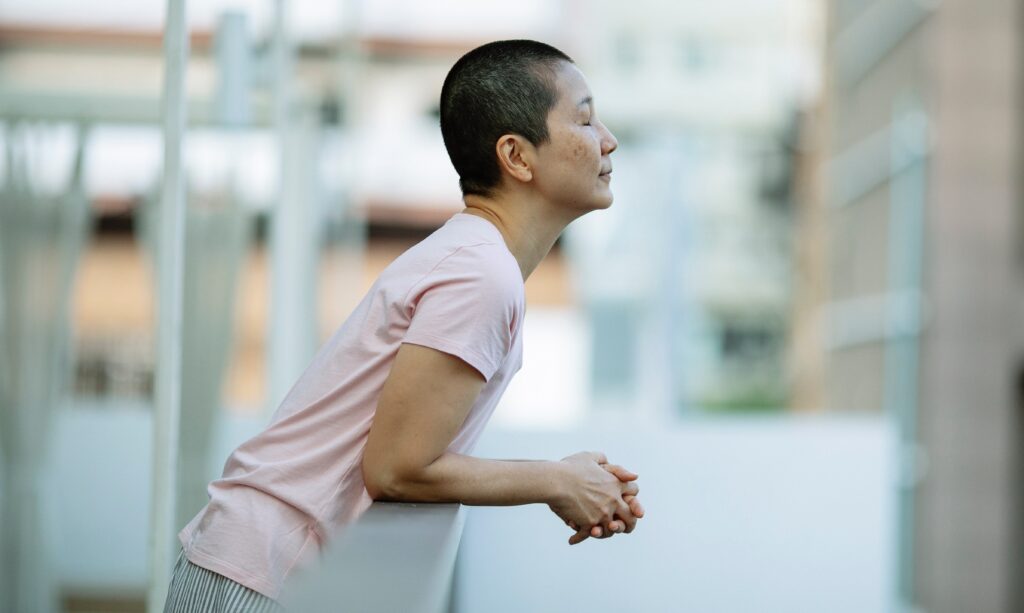2.3 million – that is the number of women who were diagnosed with breast cancer in 2020.
Breast cancer is the most prevalent form of cancer in women worldwide. Luckily, our ability to diagnose and treat breast cancer in women has improved significantly over time. With early diagnosis, the probability of survival has risen to 90%! [1]
So, in honor of breast cancer awareness month, I want to take the time to go through some of the preventative measures that every woman should take for long and healthy lives.
All women should get in the habit of doing a self-breast check every month. Breast cancer may start to show up as changes in the breast tissue. This may look and/or feel like:

Some of these symptoms may be obvious, but it’s also important to do a more in-depth exam on a regular basis in case the signs are more subtle. Perform your self-exam once a month, around 7-10 days after your menstrual period begins , or if you do not menstruate, on a single day that you will remember every month (the first of the month is usually a good day to remember).
Check both breasts in the shower, and feel for any of the tissue changes mentioned above. It’s also important to self-examine in the mirror, to check for any symptoms you aren’t able to feel, but may be able to see. And last, perform your exam once more laying flat on the ground or in bed. This allows you to check for spots that you may have not felt standing up, and also to examine your armpit region for swollen lymph nodes.
If you do feel a lump, or any changes in your breast tissue, don’t panic. Eight out of every 10 lumps found are non-cancerous, but it is important to bring this to your physician as soon as possible. If you do have a cancerous tumor, it’s better to catch it sooner rather than later. [2]
Women over the age of 40, should look into scheduling mammograms every year, or every other year, for early breast cancer detection. A mammogram is a special x-ray of the breast that detects changes in the breasts that might indicate cancerous tissue. While not always 100% accurate, the mammogram is an important tool for cancer screening.
Stay on top of your yearly appointments to stay on top of your health, and increase your chances of early detection!
The two most significant risk factors for breast cancer are gender and age. Though men are able to develop breast cancer, the risk is significantly higher in women. Additionally, risk of breast cancer increases in individuals over the age of 40, and more so as they continue to age.
Additional risk factors for breast cancer include:
It’s important to know your risk factors, as this may help you determine how often you should be screened for breast cancer, and what lifestyle choices you should make to reduce your risk. While some risk factors are not within your control, there are many that are. Following a healthy diet, drinking low to moderate amounts of alcohol, and cessation of smoking are all important behaviors to help modify your risk of cancer.
You know yourself best. While your physician has your best interest at heart, healthcare providers aren’t perfect! I’ve heard countless stories of women who went to see a doctor when they felt like something was wrong, only to be sent home with a clean bill of health. However, that wasn’t always the case.

Sometimes, breast tissue biopsies show false negatives.
Sometimes, mammograms miss cancer. One study suggested that these tests may miss up to 15% of positive breast cancer cases. [3]
Sometimes, doctors don’t hear your concerns.
If something doesn’t feel right, trust your instinct. Be an advocate for your own health, and don’t be afraid to push back when you don’t feel like your concerns are being heard. I know of lives that have been saved because of self-advocacy.
With such a high prevalence of breast cancer worldwide, it seems that many of us have been impacted by this disease in some way. Cancer touches many of us, whether we have personal experience, know a family member who lost their life, or stood alongside a friend as they fought through chemotherapy and radiation.
Your support means the world. Give a cancer survivor a hug! Offer a hot meal to those who are fighting for remission! Share this article with your mothers, sisters, cousins, aunts, grandmothers, friends, and colleagues, and encourage the women in your life to be proactive about their health. Remember, early diagnosis of breast cancer can be a life-saving discovery.
Citations